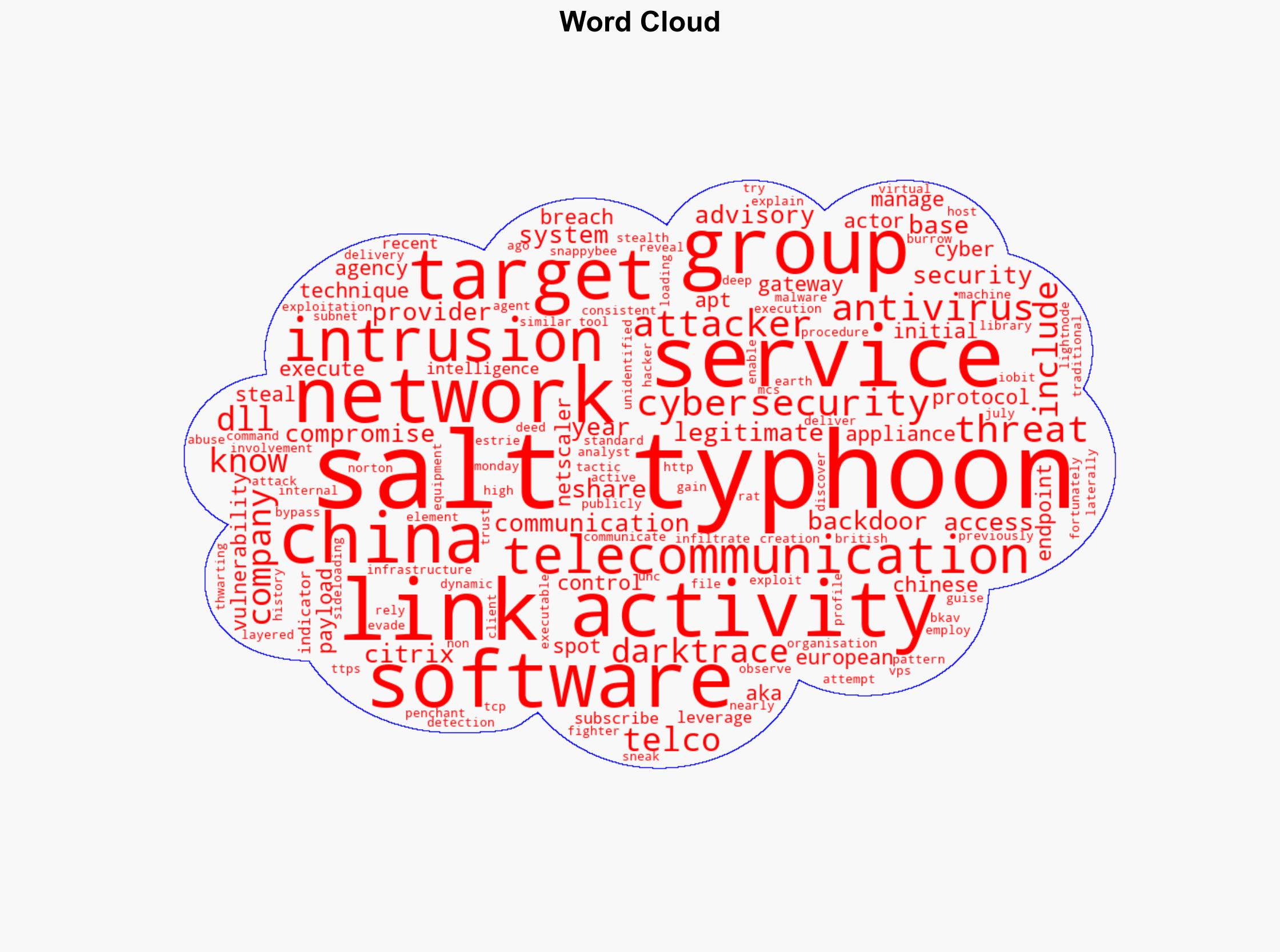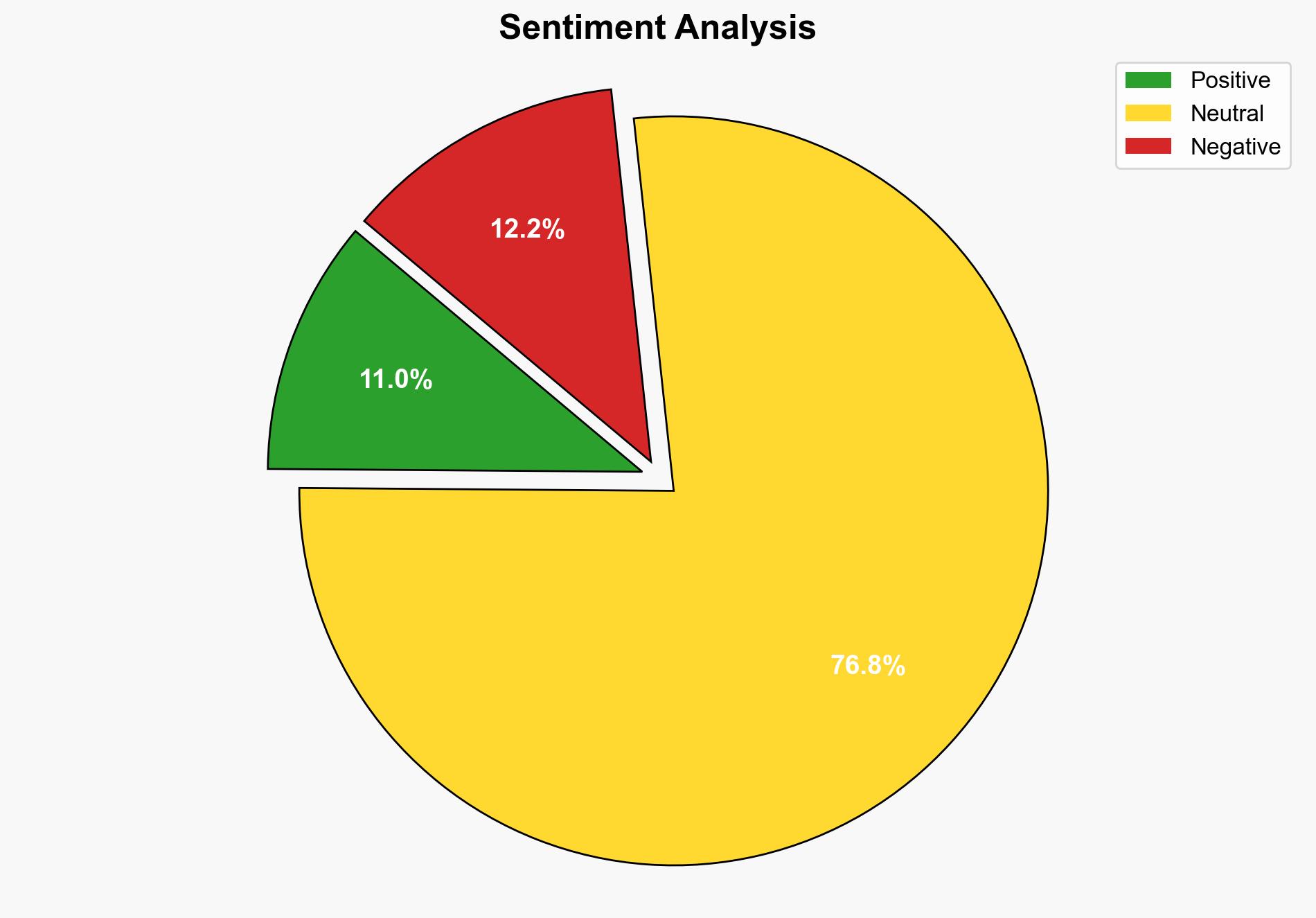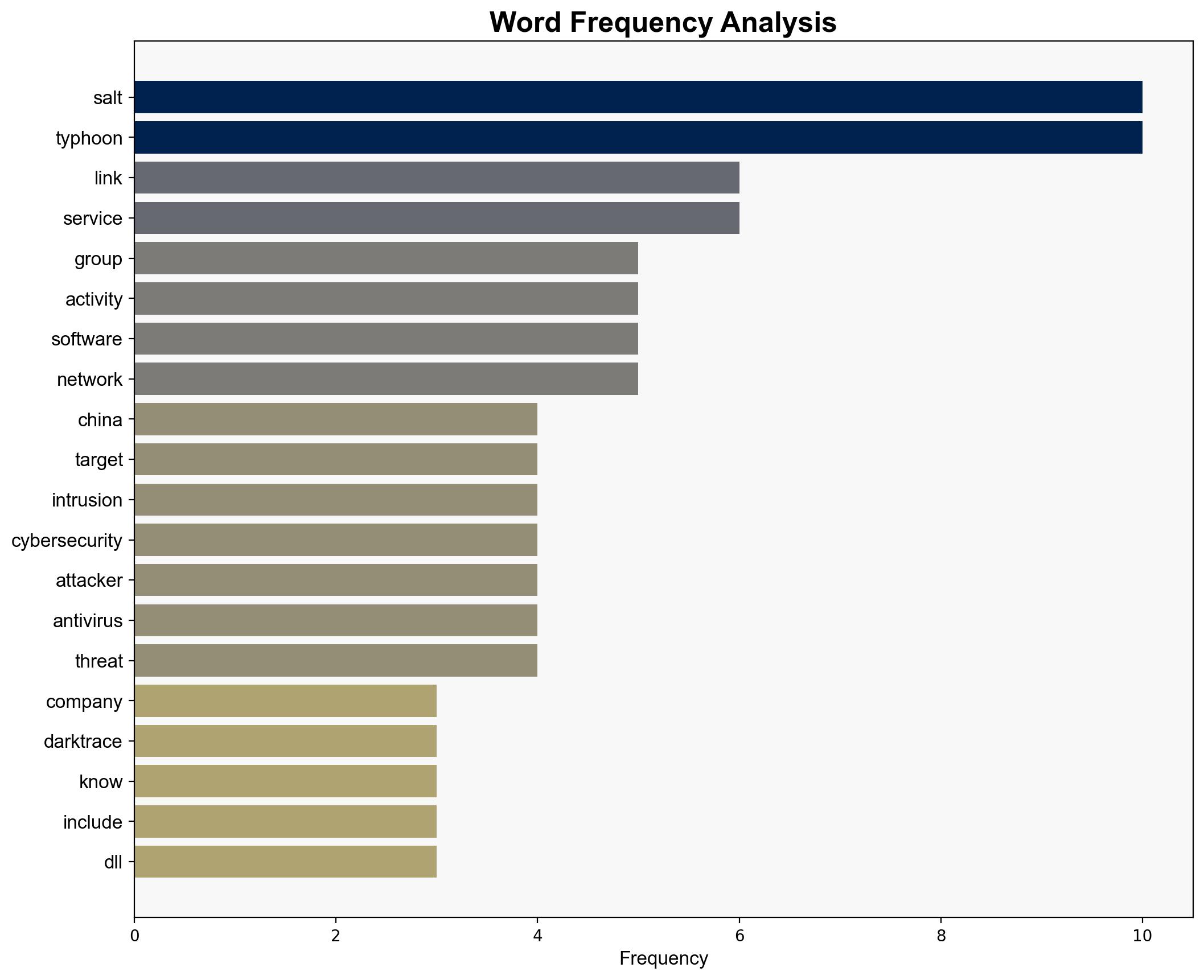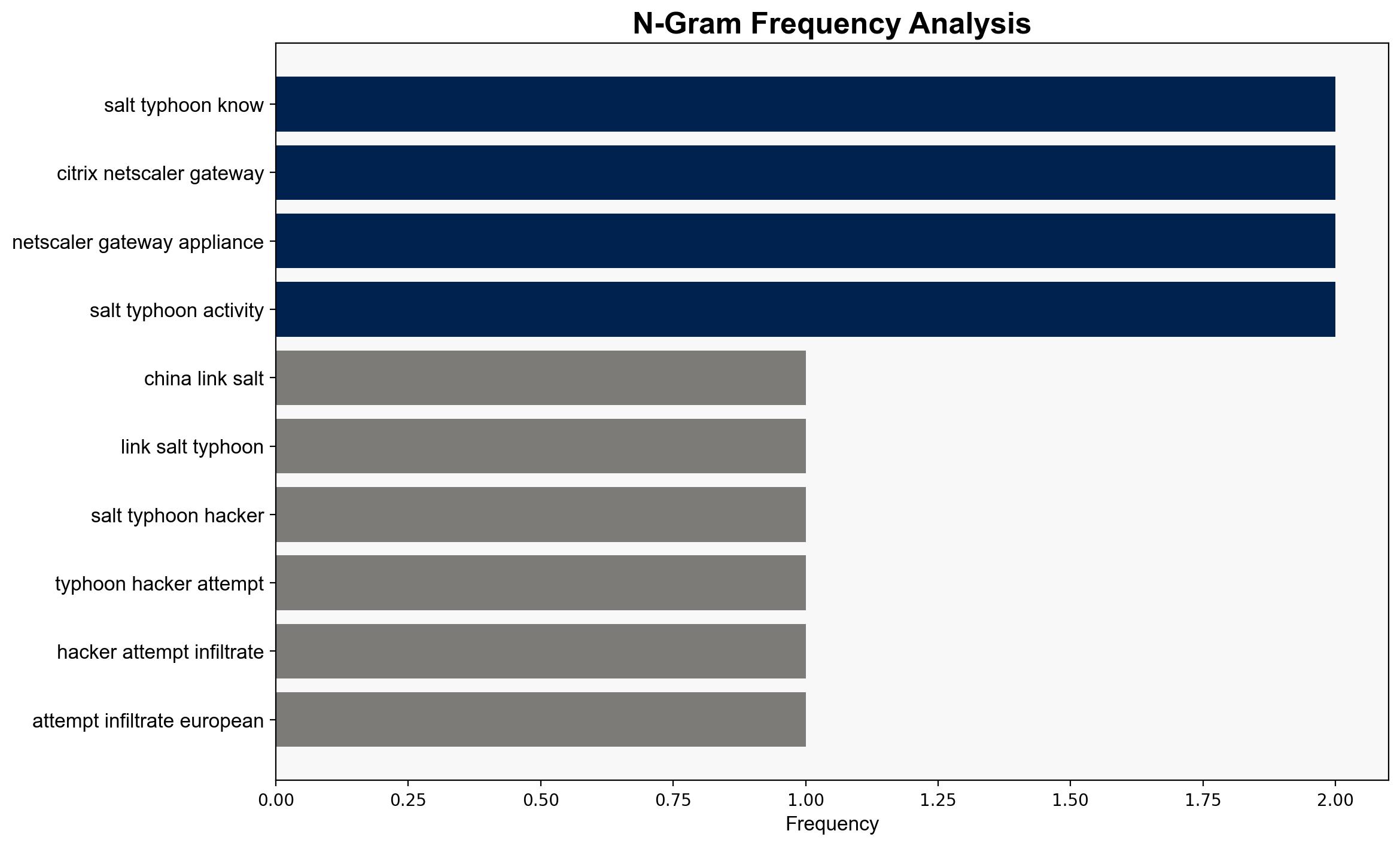China-linked Salt Typhoon hackers attempt to infiltrate European telco – Help Net Security
Published on: 2025-10-20
Intelligence Report: China-linked Salt Typhoon hackers attempt to infiltrate European telco – Help Net Security
1. BLUF (Bottom Line Up Front)
The most supported hypothesis is that Salt Typhoon, a China-linked APT group, is actively targeting European telecommunications companies to gather intelligence and potentially disrupt communications. This assessment is made with moderate confidence due to the consistent use of known tactics, techniques, and procedures (TTPs) associated with the group. It is recommended to enhance cybersecurity measures across European telcos and engage in international cooperation to counteract these threats.
2. Competing Hypotheses
Hypothesis 1: Salt Typhoon is targeting European telecommunications companies as part of a broader Chinese state-sponsored cyber-espionage campaign aimed at gathering intelligence and gaining strategic advantages.
Hypothesis 2: The activity attributed to Salt Typhoon is a false flag operation conducted by another actor aiming to mislead attribution and create geopolitical tension between China and Europe.
Using the Analysis of Competing Hypotheses (ACH) 2.0, Hypothesis 1 is better supported due to the consistent use of Salt Typhoon’s known TTPs, such as DLL sideloading and exploitation of Citrix vulnerabilities. The lack of evidence pointing to alternative actors or motivations weakens Hypothesis 2.
3. Key Assumptions and Red Flags
Assumptions include the belief that the observed TTPs are unique to Salt Typhoon and that the group operates under Chinese state directives. A red flag is the potential for misattribution due to the use of common cyber tools and techniques. The absence of direct evidence linking the activity to Chinese state interests is a blind spot.
4. Implications and Strategic Risks
The infiltration attempts pose significant risks to the integrity and confidentiality of European telecommunications infrastructure. Successful breaches could lead to the interception of sensitive communications, impacting national security and economic stability. There is also a risk of escalating cyber tensions between China and Europe, potentially leading to broader geopolitical conflicts.
5. Recommendations and Outlook
- Enhance cybersecurity protocols across European telcos, focusing on known vulnerabilities exploited by Salt Typhoon.
- Foster international collaboration for intelligence sharing and coordinated response to cyber threats.
- Scenario-based projections:
- Best Case: Strengthened defenses deter further attacks, and diplomatic channels reduce tensions.
- Worst Case: Successful breaches lead to significant data theft and geopolitical escalation.
- Most Likely: Continued attempts with varying degrees of success, necessitating ongoing vigilance and adaptation.
6. Key Individuals and Entities
Gregory Richardson is mentioned as a key figure providing insights into the strategic targeting of communication networks by cyber attackers.
7. Thematic Tags
national security threats, cybersecurity, counter-terrorism, regional focus





